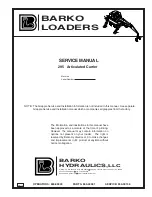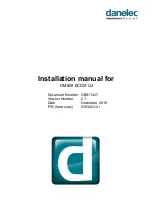
circuitbenders.co.uk drumBs build guide
Read the ENTIRE guide before starting work. This guide is for the standalone module
version of the drumBs board. The guide for the eurorack version can be found on the
circuitbenders site.
The circuitbenders.co.uk drumBs PCB is a tweaked version of the Syntom II, which was an analogue percussion
project first published nearly four decades ago in the April 1983 edition of the mighty Electronics & Music Maker
Magazine.
ALL HAIL E&MM!
The drumBs PCB can create a wide range of basic analogue percussive sounds. Essentially these are the kind of
sounds that relate to modern drum machines like an Analog Rytm, Alpha Base or Tempest in the same way as a
Commodore 64 relates to the latest Apple Mac. On paper its shit in comparison, but it's cheap and fun, and
theres a certain dirty DIY magic to it! The drumBs synth section features both a VCO and a noise source, along
with a resonant noise filter and an auto roll function. It can be built in both a Eurorack or standalone format.
The standalone drumBs controls are:
SENSITIVITY:
Optional trigger sensitivity if you're using a drum pad or piezo trigger of some sort.
DECAY:
The decay of the percussion envelope.
BEND:
The depth of percussion envelope applied to the pitch of the VCO and the filter cutoff of the noise source.
PITCH:
The basic pitch of the VCO.
CUTOFF:
The cutoff frequency for the noise filter.
REZ:
The resonance of the noise filter.
PULSE:
The level of an initial clicking attack at the start of the percussion sound .
MIX:
The mix between the oscillator and the noise source.
ROLL:
The repeat rate of the auto roll function.
VOLUME:
Unsurprisingly is a volume control
TRIGGER INPUT:
The trigger input accepts a st5v trigger pulse or gate to trigger the module.
AUTO ROLL SWITCH:
The auto roll switch activates the auto roll function whenever the switch is closed. When
the auto roll function is activated the board will automatically retrigger itself at a rate set by the roll knob for as
long as the switch is closed. This can be very useful for creating unusually timed fills and rolls, although at its
highest trigger rate the roll function can sound like a constant VCO tone.
OUTPUT:
You can probably work this one out for yourself.
PARTS LIST
PART NUMBER
PART VALUE
NOTES
D1, D2
1N4148
Diode
D3
1N5817
Polarity protection diode
R19
680R
All resistors standard 1/4 watt
carbon or metal film
R6, R7, R12, R13, R32, R33
R42
1K
R3, R9, R14, R18, R28, R35
4.7K
R8, R29, R37, R38
10K
R11, R21, R25
22K
R36
15K
R2, R5, R16, R20, R24, R26
R27, R34, R41
47K
R31
75K
R15, R30, R39, R43
100K
R1, R10, R22, R23
150K
R40
470K
R4, R17
2.2M
C16
100nF
Ceramic
C2, C3
1nF
Poly Film






















